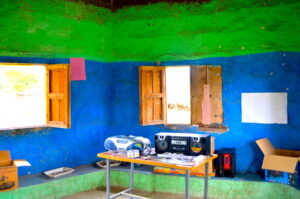Agents of change: young people engaged through antimalaria school clubs
This is a guest post from Malaria Consortium, an international non-profit organisation specialising in the comprehensive control of malaria and other communicable diseases — particularly those affecting children under five.
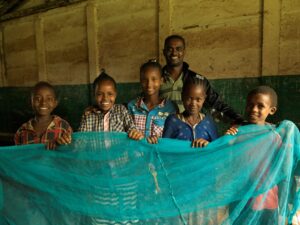
Despite being preventable and treatable, malaria threatens the lives of 3.2 billion people around the world. Every year, the disease accounts for hundreds of thousands of deaths, the majority of which are in sub-Saharan Africa. As global actors come together to mark World Malaria Day 2024, we’re featuring antimalaria school clubs, where young people are becoming agents of change, helping to secure a malaria-free future for themselves and their families.
Malaria Consortium works in some of the countries with the highest malaria burden, including Ethiopia, Nigeria, Mozambique and Uganda. According to the 2023 World Malaria Report, in 2022, Ethiopia, Nigeria and Uganda were among the top contributors to the estimated 249 million malaria cases. Nigeria, Uganda and Mozambique accounted for almost half of all cases globally, along with the Democratic Republic of the Congo.
In countries with a high burden of the disease, malaria can overwhelm health systems and limit economic growth. In these areas, school clubs provide an effective gateway for children to learn and deliver messages to their parents and to the wider community about how to protect themselves from malaria.
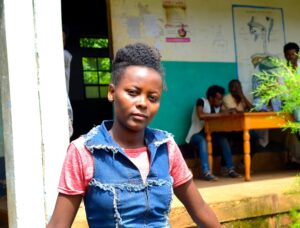
Zinagh’s story
Zinagh is a student from Halaba in the Central Ethiopian Regional State, which is among the regions with the highest malaria burdens in the country. Before joining an antimalaria school club, she did not know how to protect herself from the disease.
“Before I came here, I knew very little about malaria. I joined the school club and now I share with my family about what I know to keep them free of malaria,” Zinagh tells us.
In the fight against malaria, we have found a powerful ally — the students of Ethiopia, like Zinagh. Recognising the crucial role young people can play in sharing knowledge and changing behaviours, we established antimalaria school clubs in 119 schools across southern Ethiopia (formerly the Southern Nations, Nationalities, and Peoples’ Region).
Zinagh continues, “I show [my family] how to hang nets properly and that they must use them every night and keep our home clear of [mosquito] breeding sites.”
Lighting the way to a malaria-free future
The school clubs we supported in Ethiopia were equipped with the tools to inspire and educate — from tape recorders to loudspeakers. But Malaria Consortium didn’t stop there. We knew that many schools lacked the electricity to power these life-saving resources. So, we provided solar energy systems to 36 schools, ensuring the clubs could run their media equipment and illuminate classrooms even when the power was out.
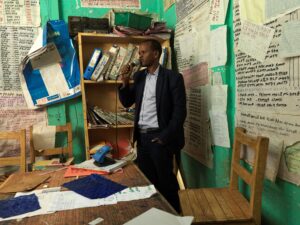
Equipping teachers, empowering communities
With 244 school principals and teachers trained on using the equipment and following the club guidelines, the stage was set. Health extension workers lent their expertise, guiding the clubs to educate students on everything from proper mosquito net use to the importance of early treatment.
Students as agents of change
Zinagh, armed with knowledge, became an agent of change. She and her classmates took these vital malaria prevention messages home, spreading awareness to their families and communities. She adds, “Now, we are not seeing malaria cases a lot. It is because of this project. We are using nets properly and do environmental control. We must maintain high awareness to keep everyone healthy.”
The impact has been profound — thanks to the efforts of the young people involved in the school clubs, over 90 percent of people in her community recognised the symptoms and causes of this potentially deadly disease.
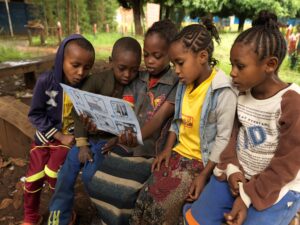
While the global health community has achieved so much, new funding is essential to ensure the long-term sustainability of life-saving malaria interventions and to ensure countries can predict and adapt to challenges and overcome them.
Available funding for malaria is off target. In 2022, a total of US$ 4.1 billion was invested globally in malaria response against the required target of US$ 7.8 billion. Widening funding gaps have left some of the most remote regions without access to basic malaria services, which could lead to an increase in deaths if not addressed. Appropriate levels of investment in creating supportive environments for students to overcome barriers in malaria control and education can have a positive impact on educational outcomes, helping to break the cycle of disease in affected communities.
Ongoing research is also essential in finding solutions to emerging threats to malaria control. Joined up approaches are needed to ensure that these efforts contribute to a reduction in malaria deaths and to cost-effective interventions and resilient, sustainable health systems. Antimalaria school clubs are an effective way of overcoming these challenges by connecting research and community efforts. These clubs facilitate the translation of new information into action on the ground, promoting resilience and sustainability in both communities and health systems.
Young people have been at the forefront of significant societal shifts, from human rights movements to climate change activism. Participating in the fight to end malaria — one of humankind’s oldest and deadliest diseases — should not be an exception. By engaging students as agents of change, school clubs empower communities with knowledge and skills to prevent and manage malaria. Achieving a world free from malaria will need us all to work together. We can all contribute to being part of the solution and end the needless deaths caused by this preventable disease.
Malaria Consortium is a trusted partner across Africa and Asia, working closely with communities, other implementers, research institutes and all levels of government in the countries in which we work. Our experience and expertise in implementing malaria programmes and research is well recognised, securing us Independent Research Organisation status and the support of GiveWell, a charity dedicated to identifying outstanding giving opportunities. You can support us to deliver high-impact, cost-effective programmes to prevent malaria and scale up the most effective innovations to eliminate this disease.
For more information about the life-saving work that Malaria Consortium does, please visit their website.
